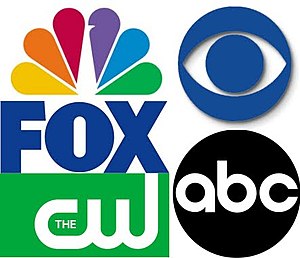
There was a time when ABC, CBS, FOX, NBC, and (to a lesser extent) the CW dominated television. With long-running mega-hits such as Friends (NBC), Survivior (CBS), Grey’s Anatomy (ABC), and American Idol (FOX) gracing our televisions, it seemed as if network television would remain Americans’ main source of TV forever. However, ratings for network shows have dwindled considerably over the past decade or so. Now, cable shows such as Game of Thrones (HBO) and The Walking Dead (AMC), as well as Netflix giants such as Orange is the New Black, House of Cards, Black Mirror, and Stranger Things are picking up steam.

So, why is network television struggling to retain viewers in 2019?
Viewer Fatigue
This is a major issue for network television shows. For many scripted series that air on non-network television, episode counts are significantly lower than what networks tend to demand. This allows shows such as Netflix’s BoJack Horseman to air shorter seasons, reducing the risk of viewer fatigue. In fact, BoJack Horseman, one of the best animated comedies out there, has only ever aired 12-episode seasons. Network comedies, on the other hand, tend to air 20+ episodes a season. ABC’s Modern Family, for example, has never aired less than 22 episodes in a single season during its ten-season run. FX’s Atlanta, conversely, has aired two seasons so far: one 10-episode season, and one 11-episode season. Atlanta has won two Golden Globes, and is one of the most loved comedies currently on air. Sometimes, less is more, and the general public appears to have adopted that mentality.
Hand in hand with this idea is when the shows air. Network shows, whether comedies or not, tend to air fairly uninterrupted from late September – early May. (Now, network executives have begun to embrace the winter break mentality, and have started to give fans more time to ruminate over their favorite shows. This was done in order to try to offset this issue, while keeping the episode counts on the higher side). Cable shows tend to air shorter seasons, resulting in either more breaks in between episodes, or producing a “limited series” feel, when all of the episodes are released in a period of a few months. Of course, streaming services have a tendency to drop all the episodes of a particular season at once, giving fans the opportunity to watch the episodes at their leisure, which often involves binge-watching. This has a win-win effect: it allows fans to watch the show quickly, while also preventing viewer fatigue and building up anticipation for the new season due to the typically year-long breaks in between seasons. Stranger Things and Black Mirror are wonderful examples of this. Just by checking social media on a random day, one can see that fans are anxious for the new season of their favorite shows; for the latest sneak peek; for the 5-13ish episode season to drop. It is harder for network TV to achieve this feeling since a show is typically finishing up its season in spring/early summer, and then starting back up again in fall/early winter. HBO’s Game of Thrones is a fantastic example of how a non-streaming service show can still achieve the goal of avoiding viewer fatigue.

GoT has aired between seven and ten episodes every year since its premiere in 2011 (besides 2018, which it took off in order to prepare for the final season), and has done a fantastic job at keeping fans active, engaged, and excited for each new season. There’s just something about having less that makes people want it even more. Network television rarely ever utilizes this idea.
Quality
This is also a huge issue amongst network television shows. Cable and streaming services just seem to provide higher-quality shows. This is a result of network television’s adoption of the “quantity over quality” mentality, as well as the constraints that are placed on network television. Take NBC’s Hannibal, one of the highest-quality network television shows in recent memory, for example. What made Hannibal such a qualitative, yet criminally under-watched, success?

Well, each season was only 13 episodes long, and the show pushed the boundaries of network television so far that it was banished to airing on Friday nights at 10 PM for its second and third seasons. So, essentially, what made Hannibal such a quality show was the fact that it was given leeway to act as a cable drama.
Hannibal may be an extreme example, but network television shows are often harmed by the restrictions placed upon them. Whether it be a hardened criminal in a gritty crime procedural being prohibited from using certain obscenities, or the necessity of keeping the public shielded from anything deemed too gratuitous or violent, disregarding if the scene justifies the content, it’s increasingly hard to produce a network television show that feels real. Shows such as HBO’s True Detective, Showtime’s Shameless, and Netflix’s Black Mirror, among many others, work so well because they are given free reign to show whatever they want to show. While sometimes shows like these can go unnecessarily overboard (*cough Shameless cough*), the idea is still the same. People want their television shows to feel as real as possible, and network television shows can have trouble achieving that directive.
Will network television be completely eradicated sometime in the near future? Probably not. However, its ratings as a whole are decreasing rapidly. Viewer fatigue, the “quantity over quality” mindset, and restrictions of the networks are main contributors of this fact.




